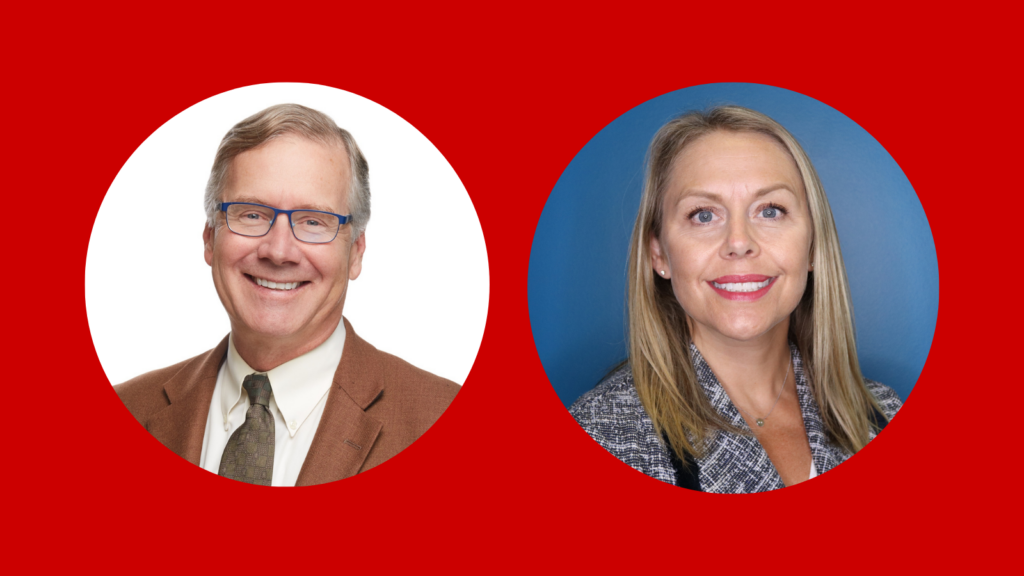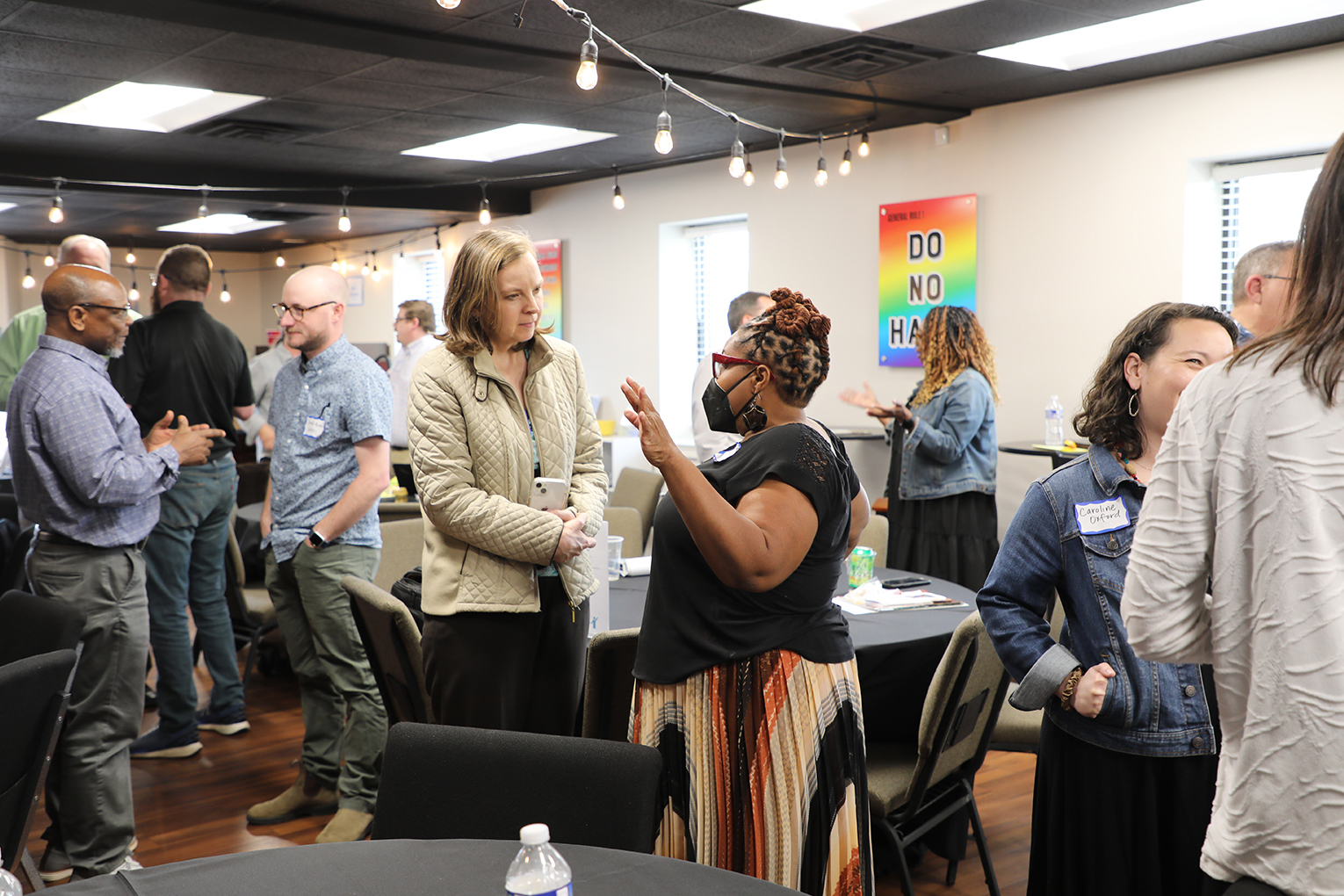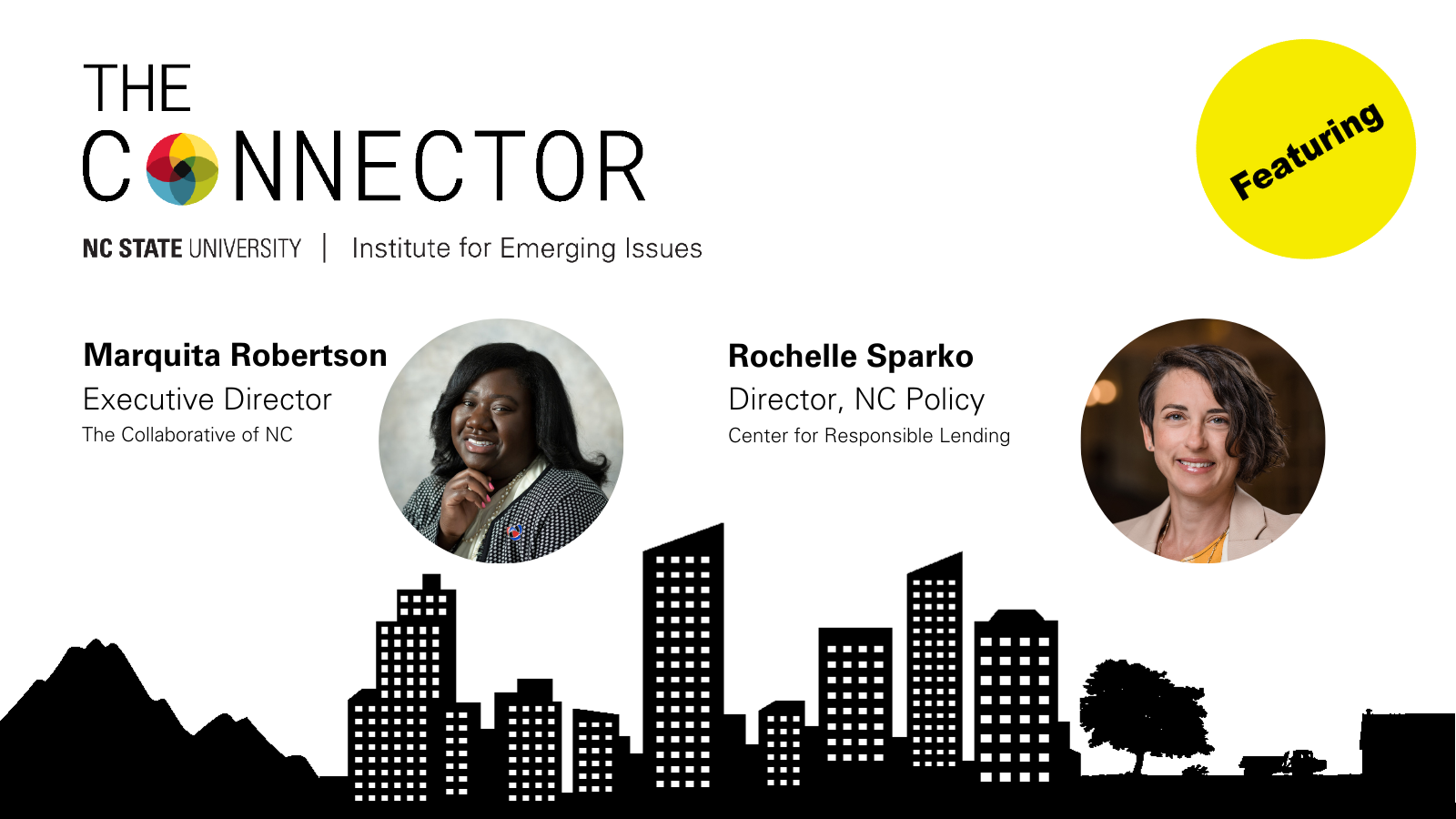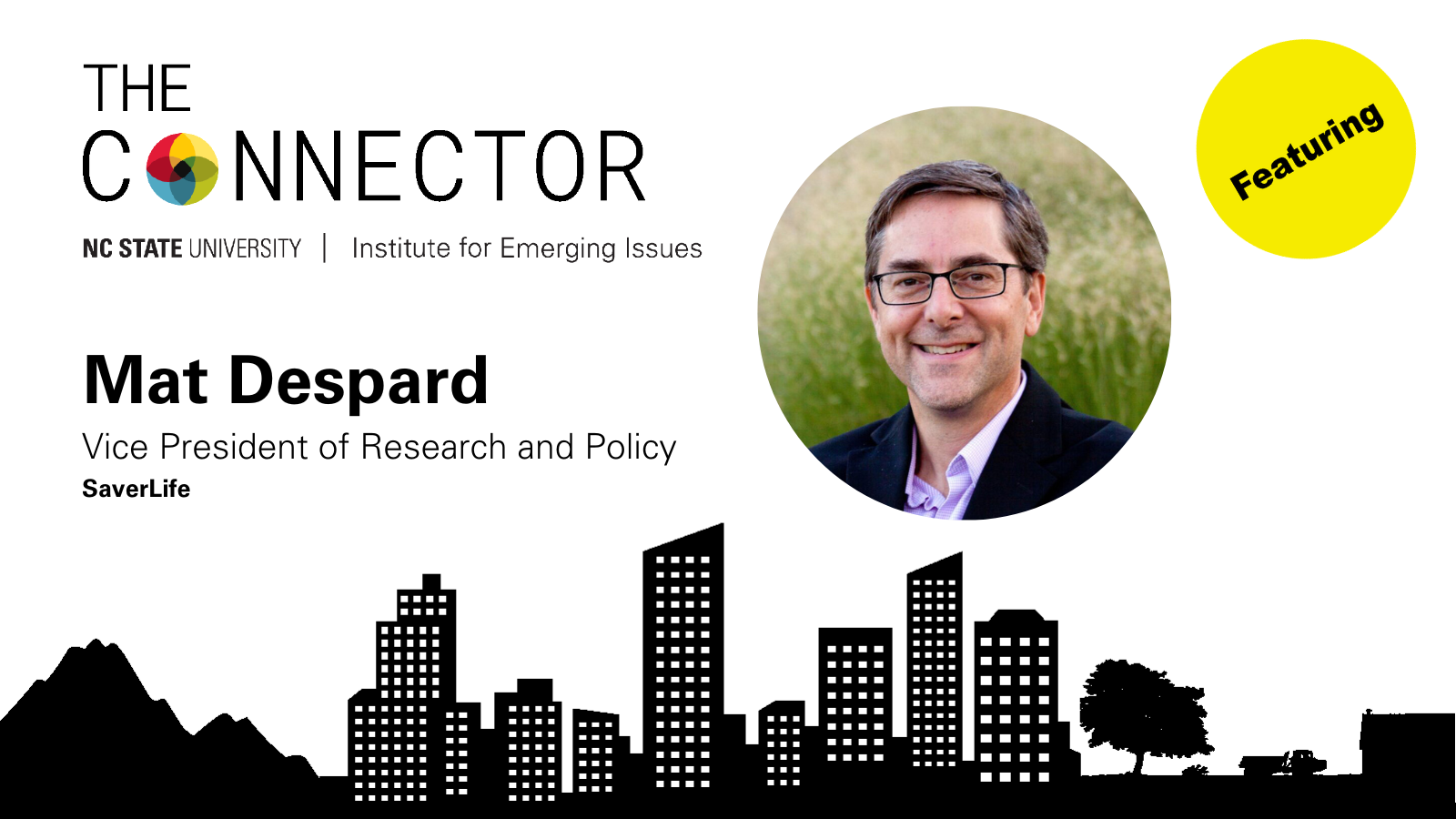Q&A with Incoming Interim Director Sarah Langer Hall
IEI Director Leslie Boney interviews Senior Policy & Program Manager Sarah Langer Hall ahead of his retirement and her appointment to interim director next month.

Leslie Boney: First of all Sarah, congratulations. I am so excited you were willing to jump in as interim director of IEI while we look for a permanent director. Over the past few weeks I’ve been really impressed with the new ideas you have and the energy you are going to bring to the job! Can you share a little bit about what brought you to IEI 11.5 years ago?
Sarah Langer Hall: I had just finished evaluating a multi-level, multi-sector childhood obesity demonstration pilot project and was working on a worksite wellness project when I saw the IEI position for a health policy manager. They wanted someone who knew the key stakeholders, and I did. I thought, this job sounds like fun!
LB: Your educational training is in public health. In what ways does that training help explain how you get your footing when it comes to taking on a new emerging issue?
SLH: I was hired as IEI’s first health policy manager in 2010 when the organization moved to issue area staff (we also had staff for education, the built and natural environment and the economy). In public health we know that behaviors don’t change overnight and that there are multiple phases people go through—the stages of change. We also know that social determinants of health and systems play a crucial role in access and decision making. As a convening organization that builds ownership for action, these are helpful tools to have.
LB: How has your work changed since you started at IEI?
SLH: At IEI we believe that emerging issues lie within the intersection of multiple issues. I started to learn more about key challenges and opportunities in education, the environment, and the economy. The first Emerging Issues Forum I led was on innovation ecosystems, the second on rural and urban interconnectedness, the third on the power of communities to tackle our greatest challenges. I still bring my health lens to the work, but like many of us, I have a lot of other lenses I’ve gained over the years, and I’m sure many more to come.
LB: What’s one thing you have learned from the pandemic, as a leader at IEI and as a parent of young children?
SLH: Someone recently shared an analogy with me that I think sums up my pandemic learning experience—with all of the balls you are juggling, know which ones are rubber and which are made of glass. Sometimes it feels like every ball is made of glass, but that level of intensity is just not sustainable. I have also watched Encanto nearly 100 times and think the song Surface Pressure is one of the best excuses to normalize talking about the pressures we are all facing (and I’m sorry if that song is now stuck in your head)!
LB: You were the person who pioneered IEI’s community-based approach to taking on emerging issues—when I got here you were working with five places that were all trying to develop innovation ecosystems, connecting them to each other, getting them technical assistance to improve their efforts, then sharing what they learned from other communities that were thinking about taking on additional work. Then when you led the three year ReCONNECT NC effort for us, you ended up identifying a total of 26 community groups that were doing impressive work. Why do you believe in that approach to getting our work done, and what have you learned from working with community groups across the state?
SLH: I wish I could take credit for initiating this work, but it was really a team decision to move towards a peer learning approach. Every community is unique but every community also has commonalities with other places. I’ve found that communities are hungry to learn and share with one another and that being a part of IEI’s programming is a really good excuse to carve out the time and space to focus on the issues that are important to them. IEI is also a fabulous connector and cheerleader for these communities. For more on our lessons learned, check out pages 28-29 of the ReCONNECT NC report.
LB: You’ve also been leading IEI’s effort to work in closer partnership with state-level organizations. How does that help us move public policy ideas along?
SLH: As Helen Keller once said, “Alone we can do so little; together we can do so much.” And we’re trying to be more intentional with how we identify, develop and nurture partnerships with other organizations to support public policy.
LB: What’s the most important thing people should know about you in this new role?
SLH: IEI has an incredibly dedicated team and board and we are all in this together. I am leading IEI’s next Emerging Issues Forum on Talent First Economics, a role the director is usually very involved in. And I have been involved in some form or another with all of our notable programs.
LB: On to more “important” things. Here are three questions designed to get you in trouble. For barbecue, vinegar-based or tomato-based? Who’s your favorite college basketball team? And what’s your favorite town to visit?
SLH: 1) Whatever is being served, 2) NC State (am I contractually obligated to say this?), 3) My last first date was in Saxapahaw, NC. I highly recommend you check it out if you haven’t been yet.
LB: Final question: you’re from Buffalo and the loudest Bills fan I know. Let’s say February 12, 2023, the Carolina Panthers are playing the Buffalo Bills in the Super Bowl in Glendale, Arizona. Who do you cheer for and will you show up for the Emerging Issues Forum the next day?
SLH: I have been waiting my entire life for Buffalo to win a Super Bowl, and as you may recall, this was a point of discussion when we selected the February 13 Forum date. No matter what, I commit to being at the Forum… and maybe they’ll have perfected holograms by then and I can be in two places at once!
- Categories:


